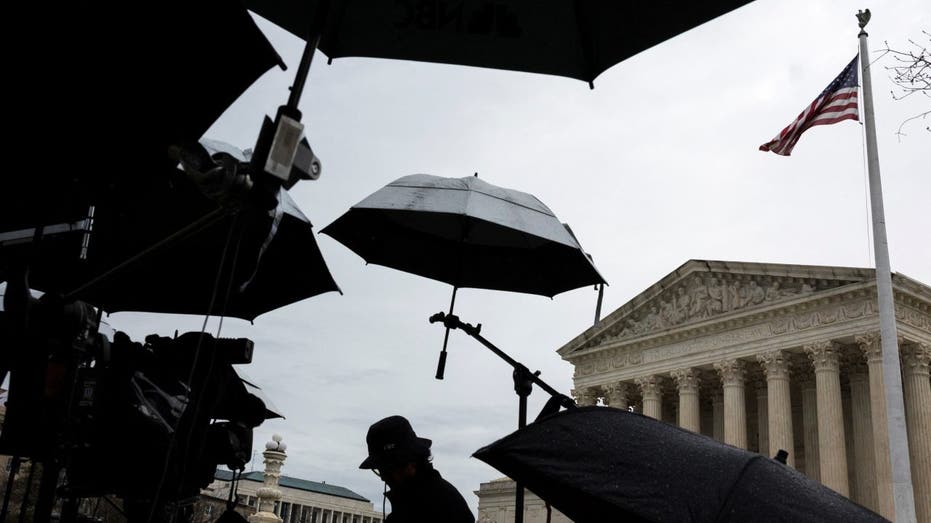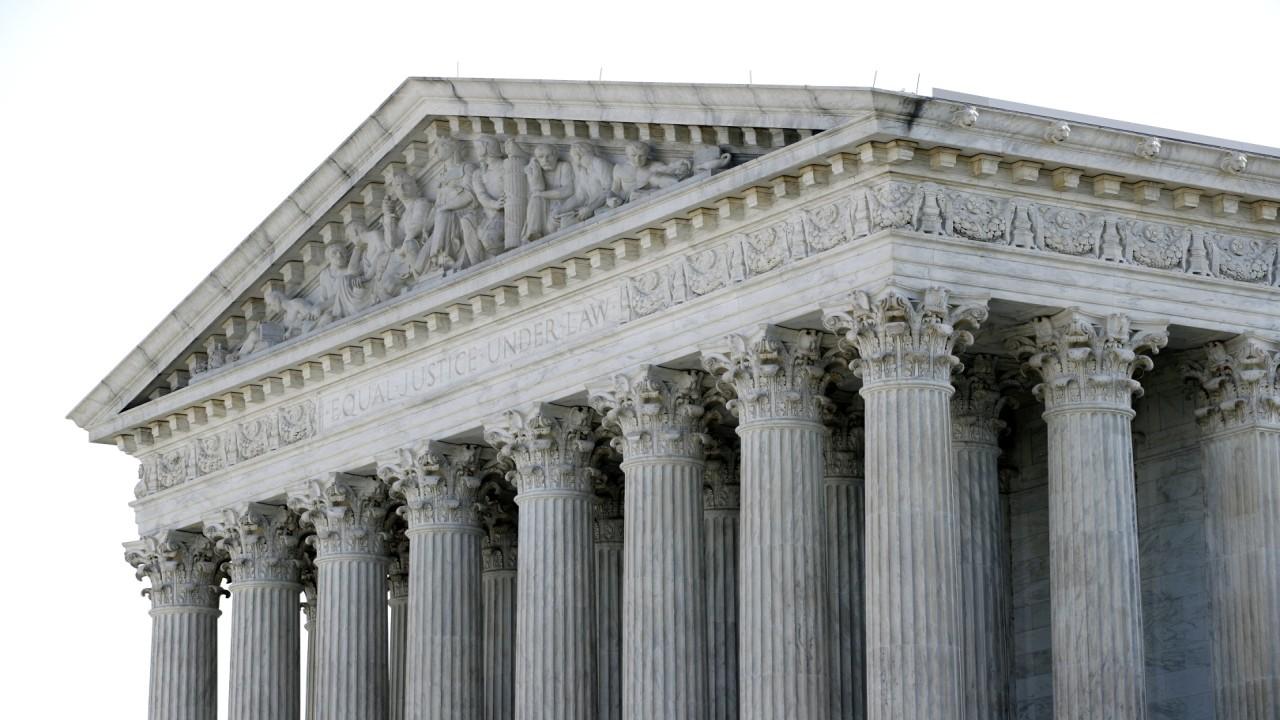Supreme Court to hear challenge to Consumer Bureau’s funding
Lower court struck down independent funding system designed for the Consumer Financial Protection Bureau
SCOTUS decision ruling CFPB structure unconstitutional 'very interesting': Judge Napolitano
Judge Napolitano on Supreme Court ruling CFPB unconstitutional
The Supreme Court said it would review an appeals court decision striking down the independent funding system Congress designed for the Consumer Financial Protection Bureau, a ruling that conflicted with other lower-court rulings and placed a cloud over the regulator’s activities.
The CFPB was created as part of the 2010 Dodd-Frank financial overhaul, and was intended to safeguard consumer welfare following the financial crisis. Conservatives have challenged the agency’s legitimacy on various grounds, and in 2020 the Supreme Court struck down a provision preventing the president from removing the CFPB director without cause.
Like that for-cause provision, the CFPB’s funding structure is intended to insulate it from political interference—in this instance, from Congress rather than the White House. Under the law, the CFPB director sets a budget he or she determines is necessary to fund the agency’s mission and the funding comes from the Federal Reserve, subject to certain caps. The cap for the fiscal year that began Oct. 1 is $750.9 million, according to a bureau budget document.

Television equipment is seen outside the U.S. Supreme Court as Justices hear oral arguments on Twitter's appeal to an anti-terror law violation, in Washington, U.S., February 22, 2023. The Supreme Court has agreed to hear a challenge to the Constitut
Last October, the Fifth U.S. Circuit Court of Appeals, ruling in a case brought by payday lenders challenging a CFPB regulation, found that structure violated the constitutional provision giving Congress authority over appropriations. The appellate court discarded 2017 restrictions on payday lenders, saying they were completed while the bureau was funded in an unconstitutional way.
That line of thinking, if upheld, could undermine the bureau’s past rule-making efforts and any steps to enforce those rules, particularly in the fifth circuit, which includes Mississippi, Louisiana and Texas, though financial firms would likely have to raise individual challenges to those measures.
The CFPB case is expected to be argued in the Supreme Court’s next term, beginning in October. A CFPB spokesman said the agency was pleased that the court will review the appellate court decision and that it is confident in the constitutionality of its funding mechanism, "which is not novel or unusual."
"As it did for the Federal Reserve Board and other federal banking regulators, Congress authorized the CFPB’s funding through legislation other than annual spending bills," said the spokesman, Samuel Gilford. "This type of funding is a vital part of the nation’s financial regulatory system, providing stability and continuity for the agencies and the system as a whole."

This May 4, 2021, file photo shows the Federal Reserve building in Washington. The current organizational structure allows the CFPB to receive its funding from the Federal Reserve, not congress. (AP Photo/Patrick Semansky, File / Associated Press)
The bureau has largely survived earlier legal challenges to its creation, including separate litigation challenging its constitutionality that wound its way to the Supreme Court, culminating in a ruling about three years ago. While that 2020 ruling found that the bureau’s structure was unconstitutional because its director held too much unchecked power, the court held the solution was to allow the president to remove the director for any reason. The court rejected broader legal arguments that it should strike down the bureau altogether.
Some legal experts and former bureau officials said the current case could pose a bigger threat to the agency than the 2020 litigation because there may be no simple remedy for altering the bureau’s funding source, especially with power split between parties in Washington.
If the Supreme Court kicks the funding issue back to Congress to resolve, lawmakers may be unable to agree on a solution, said Richard Hunt, a former head of the Consumer Bankers Association who now consults for the banking industry. Democrats have generally wanted a muscular CFPB to take on what they see as financial-industry excesses, while resisting industry calls to transform the bureau into a bipartisan commission. Meanwhile, Republicans and Wall Street have criticized the bureau as an instrument of runaway government regulation, with too much power over a significant slice of the economy.
SUPREME COURT ORDERS RESTRUCTURING OF CONSUMER FINANCIAL PROTECTION BUREAU
"There’s a good amount of Republicans who don’t want to give the CFPB any funding whatsoever and would wish to see it dissolve," Mr. Hunt said.
In advance of any Supreme Court ruling, the Mortgage Bankers Association has warned lawmakers of both parties that the $13 trillion U.S. mortgage market could stop functioning normally should a spate of CFPB rules for the market become invalid. If that were to happen, Congress would need to act quickly to codify the existing rules into legislation, according to Pete Mills, MBA’s senior vice president of residential policy.

A view of houses in a neighborhood in Los Angeles, California, on July 5, 2022. - The Mortgage Bankers Association has warned that the $13 trillion U.S. mortgage market could stop functioning normally should a spate of CFPB rules for the market becom ((Photo by FREDERIC J. BROWN/AFP via Getty Images) / Getty Images)
CLICK HERE TO GET THE FOX BUSINESS APP
The CFPB’s payday-lender rule, completed in 2017 when the bureau was still under Obama-era leadership, clamped down on providers of small, short-term consumer loans that can have interest rates as high as 400%, bringing the industry under federal oversight for the first time. The bureau later repealed a key provision of the rule in 2020 requiring lenders to verify borrowers’ incomes to ensure that they can afford to repay the loans.




















